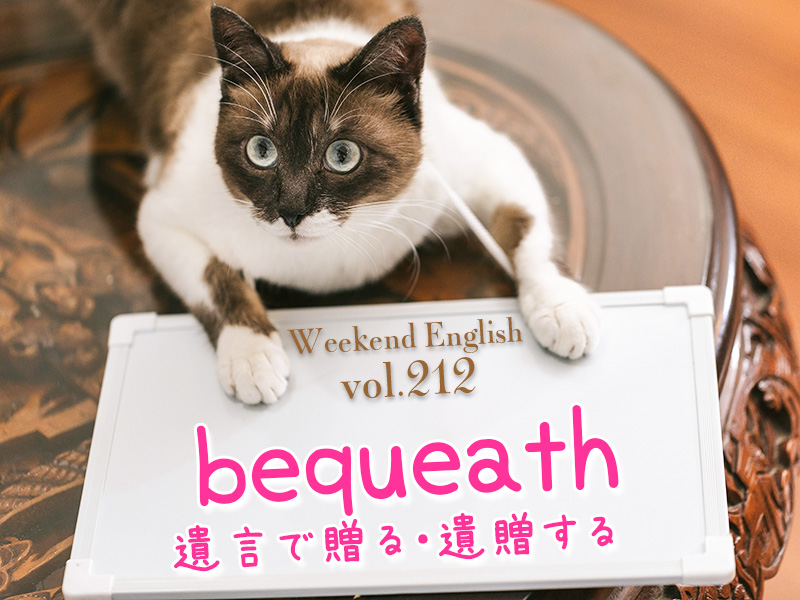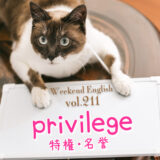スポンサーリンク

アルク ![]() の『ENGLISH JOURNAL
の『ENGLISH JOURNAL ![]() 』の英単語問題で出てきた「bequeath」。
』の英単語問題で出てきた「bequeath」。
これは単語の意味自体を知らないとわからない問題だった。
やっぱり語彙力も大事だね。
「bequeath」は他動詞で
- 遺言で譲る、遺贈する
- 後世に残す、伝える
という意味。
発音は[bikwíːð(ビクイース、ビクイーズ)]。
「bequeath」の語源は
- be:〜になる、〜をつけた(他動詞を作る接頭語)
+ - queath:話す→quoteは引用する
↓
言い残す
↓
遺言で譲る
ということらしい。
う〜ん、「queath」がわからないと語源から類推するのも難しいな。
ちなみに英英辞典の『Cambridge Dictionary』には
to arrange for money or property to be given to somebody after your death:
とありました。
ちなみに英語で遺言は「will」です。
「will」にもいっぱい意味があってやですね〜。
「bequeath」も遺言で譲る、後世に残すということなので「leave(残す)」を使って言い換えることができます。
- The grandfather bequeathed the house to his grand son.
- The grandfather left the house to his son in his will.
(祖父は、遺言で、家を息子に残しました。) - My parents bequeathed me a lot of money.
My parents left me a lot of money in the will.
(私の両親は、私に多額のお金を遺した。)
「bequeath」はあまり日常会話で使うことはないようですが、英検やTOEICの問題でも出てくるみたいです。
小説でもたまに登場するかな。
- My mother bequeathed me her jewelry.
=My mother left me her jewelry.
(母は、私に宝石を遺した。) - He bequeathed his artworks to the city of Tokyo.
(彼は彼の作品を東京に遺贈しました。) - He bequeathed his stamp collection to me .
(彼は私に彼の切手コレクションを遺贈した。) - It was bequeathed to me by my grandfather.
(それは、祖父が私に残してくれたものだ。) - This old watch was bequeathed to me by my grandmother.
(この古い時計は祖母が私に遺してくれた。=祖母の形見だ。)



